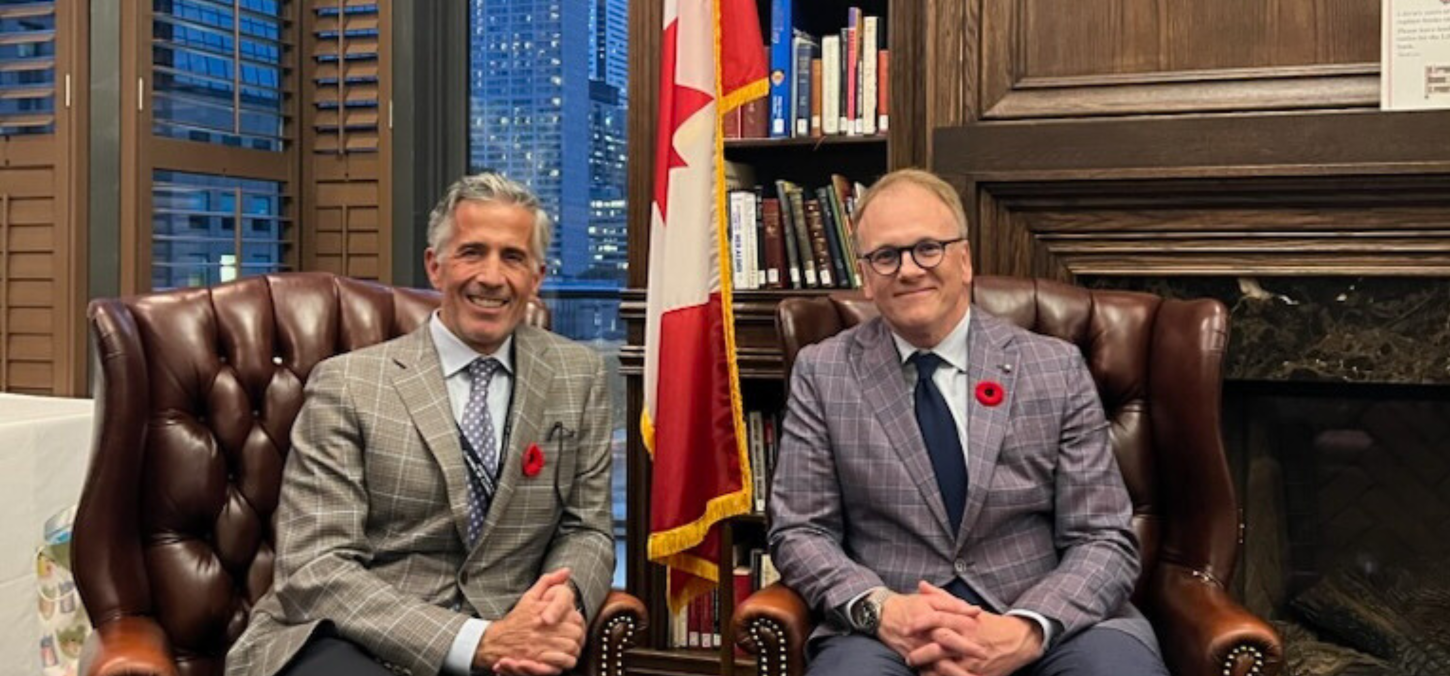
Honing surgical and leadership skills
One day last fall, Amina Bouzid got out of bed knowing that, in just a few hours, she would serve as the first assistant in the operating room for the first time. “I was so stressed and excited,” she says, recalling that she went through the steps of the surgery in her mind while she brushed her teeth.
When she took her place on one side of the patient to perform a corrective jaw procedure — assistant professor Marco Caminiti 9T8 Dip OMFS was stationed on the other side — her years of training fell into place. “My mind just shut off, going into autopilot mode. My hands were moving in the way I’ve watched others’ hands move for years.”
Of course, the surgery went well for the patient and for Bouzid, who’s in the fourth year of the Faculty of Dentistry’s Oral and Maxillofacial Surgery (OMFS) residency and MSc program. She’ll graduate this spring having served in a variety of roles during surgeries, seen patients both pre- and post-op, guided interns and junior residents and completed a thesis (hers is on surgical outcomes with custom temporomandibular joint implants).
After graduation, she plans to work as a general oral and maxillofacial surgeon, ideally with ties to academia. “This field has such a broad scope, there’s so much you can do,” she says. “I hope to find a practice that will allow me to do the kind of work I’ve been able to do in this program.”
What draws students to the degree is the range and complexity of patients they’ll see at five different hospitals across the city — patients come from all over the province and Canada to Toronto for care. “This is the most sought-after program in the country,” says Caminiti, who is also graduate program director. “We get the highest number of applicants because the residents are very busy with the highest surgical burden in Canada.”
The program includes a one-year internship, a four-year residency that students either combine with an MSc or a PhD, plus a one-year fellowship in temporomandibular joint and orthognathic surgery. (Bouzid completed the internship before applying to the four-year program, having already done her DMD at McGill and a general practice residency through Sunnybrook.)
In these programs, participants perform a range of oral surgeries such as pulling wisdom teeth, doing implants and performing cancer surgery, and also maxillofacial procedures such as temporomandibular joint, facial deformity and trauma surgeries. They frequently collaborate with orthodontists and plastic surgeons. They become deft in dealing with complications such as oral infections and bleeding.
Caminiti wants students to hone their skills plus understand their larger roles as surgeons. “I tell them that you have to go and sit at the table. Because if you don’t, you’re going to be part of the menu,” he says. Hence, students join committees and do industry presentation and public speaking.
“This is not just a job. It’s a role in a community or hospital. A lot of people will depend on them.” That includes patients and also general dentists, who look to oral and maxillofacial surgeons as an important resource.
To foster the larger community of surgeons, the OMFS program invites them to the Faculty once a year for Education Day. It runs every November and hosts about 70 surgeons, residents and fellows from across Canada. “It ends up being the largest gathering of oral surgeons in Canada,” he says. This must-attend, education-focused event features leaders in the field speaking on current topics, residents presenting abstracts of their research and a gala dinner in the evening.
Looking ahead, the program will become a six-year MD program starting in 2025, which Caminiti says will reflect what many other schools are doing, plus allow residents to apply to a wider range of fellowships. (He says half of the residency program graduates go on to work as surgeons directly while the other take on fellowships to further specialize.)
What will not change is the breadth and depth of this challenging program that stays very connected to the real — and often complex — needs of the wider community while building a leadership-focused surgical community. Says Bouzid, “It’s a busy program and it’s a lot of hours and a lot of sacrifice, but it has a really good support system. We are a good team; there’s always someone to lean on.”